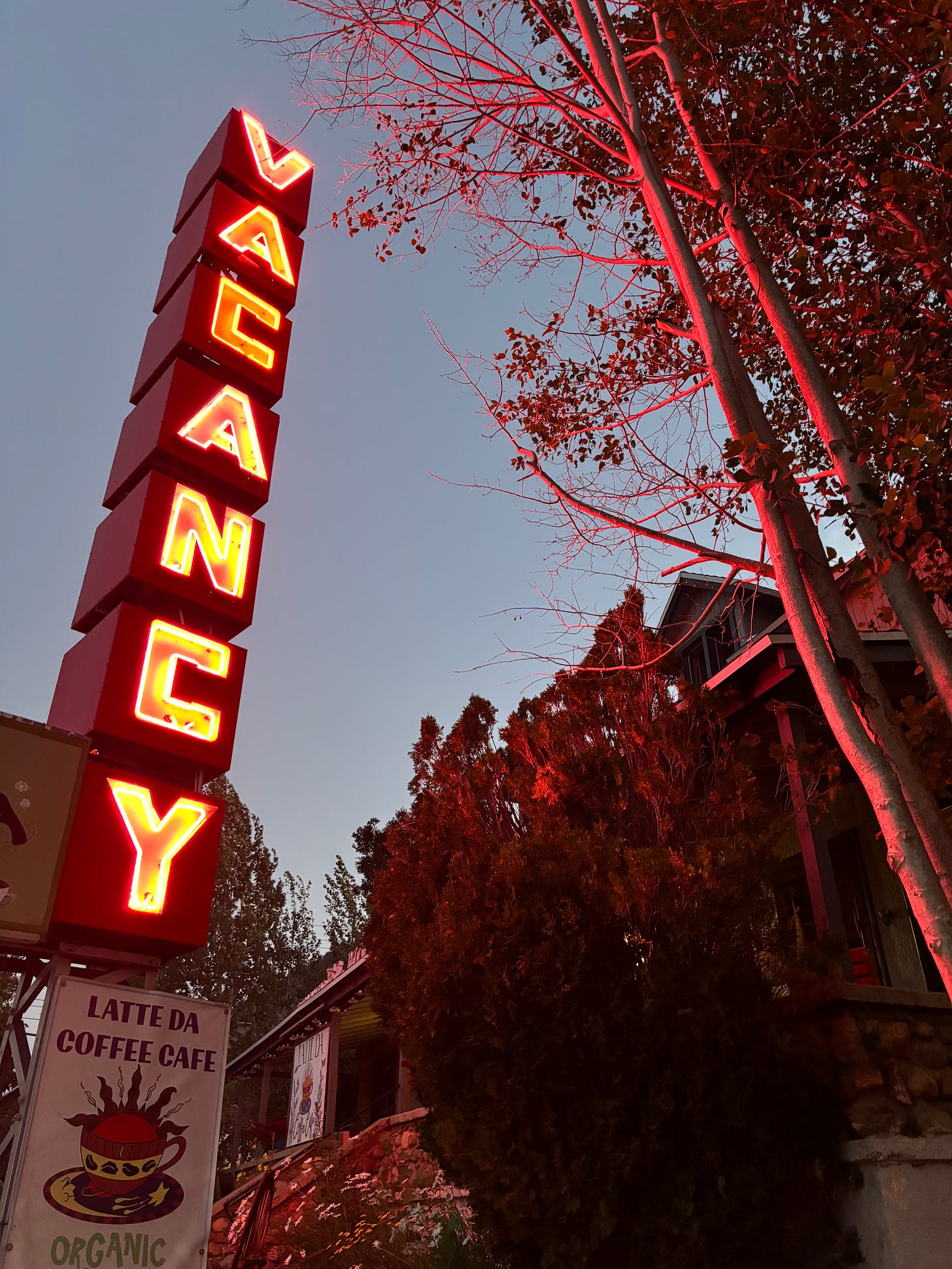Wilderness as a Reminder
the point of going into the mountains
A couple posts back, I mentioned that I’d gone into the Sierra Nevadas with an old friend to walk around for a while. We covered about 40 miles in four days, through a series of mountains that slowed us down with rocky trails and steep switchbacks.1 We had water filters, and got water from lakes and streams, following the conventional wisdom about preferring flowing water to standing water. There’s a whole thing about water treatment in the wilderness, for people who do this stuff: gravity filter vs squeeze bottle filter and on and on.
Late on the third day, we walked through a long valley with a very modest oxbow stream that didn’t move especially much, and that was tucked away in a meadow with poor access behind a bunch of grass and wildflowers. “Leave no trace,” and getting to the stream on boots would have left a big one. So we skipped it and walked on, comfortable that there’s water everywhere in Yosemite National Park.
When we set up our tents for the night, though, we realized that we weren’t near a water source, and we didn’t have much water left. We woke up in the morning with a fifth of a liter between us, and immediately broke camp to start looking for a stream.
We weren’t in danger — at worst, we were two miles from the Tuolumne River, a certain source of clean water — and we weren’t even a little dehydrated, having had plenty of water the day before. We were briefly and mildly inconvenienced. Hiking without coffee, the horror.
So we took off down the trail, and quickly found a puddle: a muddy hole, with vaguely greenish standing water that had mosquitos floating on the surface. Our backpacks hit the ground, and we both went digging for our filters. It was a moment of actual excitement: hell yeah there’s a puddle. I regret that I didn’t document the muddy puddle with a photograph. Ten minutes later, we were drinking coffee. And I was eating another pouch of freeze-dried curried chicken for a morning meal, since the idiot who packed my bear canister really underplanned for breakfasts.
A few hours later we were at the counter at the Latte Da, in Lee Vining, debating over the cookie options.
The moment was hallucinatory, as moments of radical transition tend to be. I thought of the time the United States of America flew me home from the shit-brown monotony of northern Kuwait to, of all places, Wisconsin, where I stared at the green landscape around the runway with my mouth hanging open. And then wandered the aisles of an American PX, wondering precisely how many variations on Mountain Dew could possibly exist.
The transition from a place where you can run out of water and a muddy hole in the trail is exciting to normal life is…useful. A useful moment. Similarly, the transition from the place where twenty miles to go means many hours of switchbacks and steady grinding over mountain passes to a place where 350 miles to home is a quick drive is the world’s way of showing you how easily you live.
We wake up every day embedded in a system of great complexity and effectiveness, not noticing it, and not noticing the comfort it very casually provides to us. As I’ve said before, we don’t do nearly enough to nurture, preserve, and respect that system. It helps to leave it, which makes you see it immediately with the greatest possible clarity.
The twenty year-olds racing up the Pacific Crest Trail to Canada do thirty-mile days like they’re strolling through a shopping mall, and stare at you with confused eyes when you say you’re doing ten-mile days. They think it’s sweet that you’re not embarrassed.



For those of us who are naturalized citizens and have lived elsewhere to be able to have a sense of contrast, every day is one of wonder and gratitude at this country, what it represents, and how generally well it functions as a matter of routine. That this country could be destroyed on the whim of grand and malevolent ambitions is truly tragic.
I moved from one of the four largest cities in America to a rather remote, mountainous location 7 years ago. I’m 30 minutes from a town of about 2500 and an hour from a city of around 25,000. There are no city lights to inhibit seeing nightly the full canopy of stars. I can hike out of my front door and not ever see another person as I hike through inaccessible State Lands. The contrast of this and my previous life is still jarring. I know this kind of living isn’t possible for most but the experience, just as you indicate, really puts things into perspective.